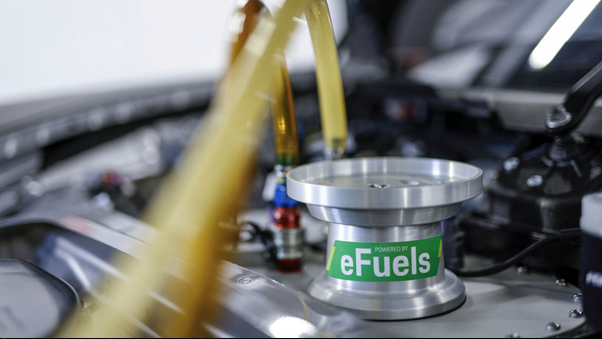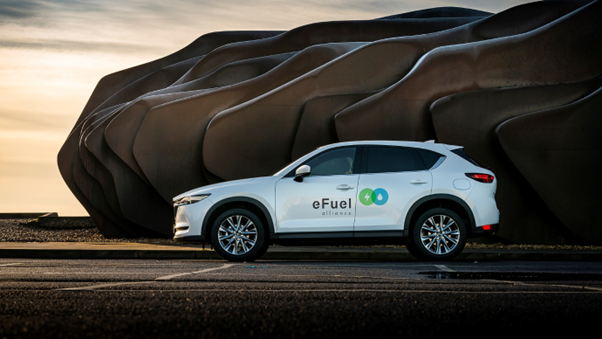Alternative Fuels
As we move forward with electrification but still need to find ways to support combustion engines, we look at what alternative options are available to support ICE vehicles that will still be on the road for many more decades. Below are key points on new alternative fuels including synthetic "eFuels".
What are synthetic fuels?

As the name suggests, synthetic fuels are liquid or gaseous fuels that are produced artificially, rather than extracted from crude oil or natural gas. In the case of cars, the most common type is called e-fuel, which is designed to be compatible with internal combustion engines without modification.
Rather than taking hydrocarbons (hydrogen and carbon) from crude oil, synthetic fuel uses a process that combines hydrogen harvested from water with carbon dioxide taken from the air. This is then refined into petrol and diesel to be pumped into your fuel tank.
Because carbon was extracted from the air during the production process, this helps to offset the carbon emissions during combustion, making synthetic fuels a more sustainable solution.
In other cases, e-fuels are produced using waste materials, including used vegetable oil and food waste, which is mixed with ethanol to produce biofuel.
How is synthetic fuel produced?

To produce synthetic fuel you need electricity, ideally from a renewable source, which separates the oxygen and hydrogen particles of water by electrolysis to create renewable hydrogen.
This is combined with carbon dioxide captured from the oil or via an industrial facility. The resultant synthetic fuel can be used to power cars, commercial vehicles, boats and aircraft.
What’s good about synthetic fuels?
The advantages of synthetic fuels include:
- Lower carbon footprint – they can be carbon-neutral if produced using captured carbon dioxide and renewable energy
- Compatible with existing petrol and diesel engines – no modifications required
- Reduces our reliance on oil, making it a viable alternative to fossil fuels
- A familiar experience – the car will sound, feel and behave like a traditional petrol- or diesel-powered vehicle
What’s bad about synthetic fuels?
The disadvantages of synthetic fuels include:
- E-fuels are expensive due to cost and complexity of production
- Limited availability – synthetic fuel technology is still relatively new, so fuels are not readily available
- Not totally green – synthetic fuels still emit gases that are harmful to the environment, such as carbon monoxide and nitrogen oxide, and require large amounts of energy to produce

Right now, synthetic fuels are too expensive to be a realistic alternative to traditional petrol and diesel. However, as the tech improves and demand increases, the cost is likely to come down.
But the biggest issue is the environmental impact, especially if the electricity required for production isn’t sourced from renewable energy. The carbon-neutral nature of its carbon dioxide emissions is a positive – as is the reduction in demand for fossil fuels – but a car running on synthetic fuel will not offer the same air quality benefits as an electric car.
So, they aren’t a saviour for the car as we know it, but synthetic fuels could be the alternative when the oil wells run dry.
Download the research paper for further details information on alternative fuels.
'What are synthetic fuels – and can they save cars as we know them?'
Gavin Braithwaite-Smith
Motoring Research - [April 29, 2025]
Car Codes
- Car Codes Explained
- Car Codes and Algorithm
- Pseudo Car Codes
- Car Code Search
- Car Type Definitions
- Fuel Type Guide
- Vehicle Selling Guides
- English Selling Guide
- French Selling Guide
- German Selling Guide
- Spanish Selling Guide
- Dutch Selling Guide
- Polish Selling Guide
- Portuguese Selling Guide
- Brazilian Selling Guide
- Commercial & Cargo Guidelines
- Environmental & CO2 Emissions
- CO2 Emissions Efficiency
- Alternative Fuels
- SUV & Crossover update
- Electric and Hybrid Vehicles
- Autonomous Vehicles
- Subcription Request
